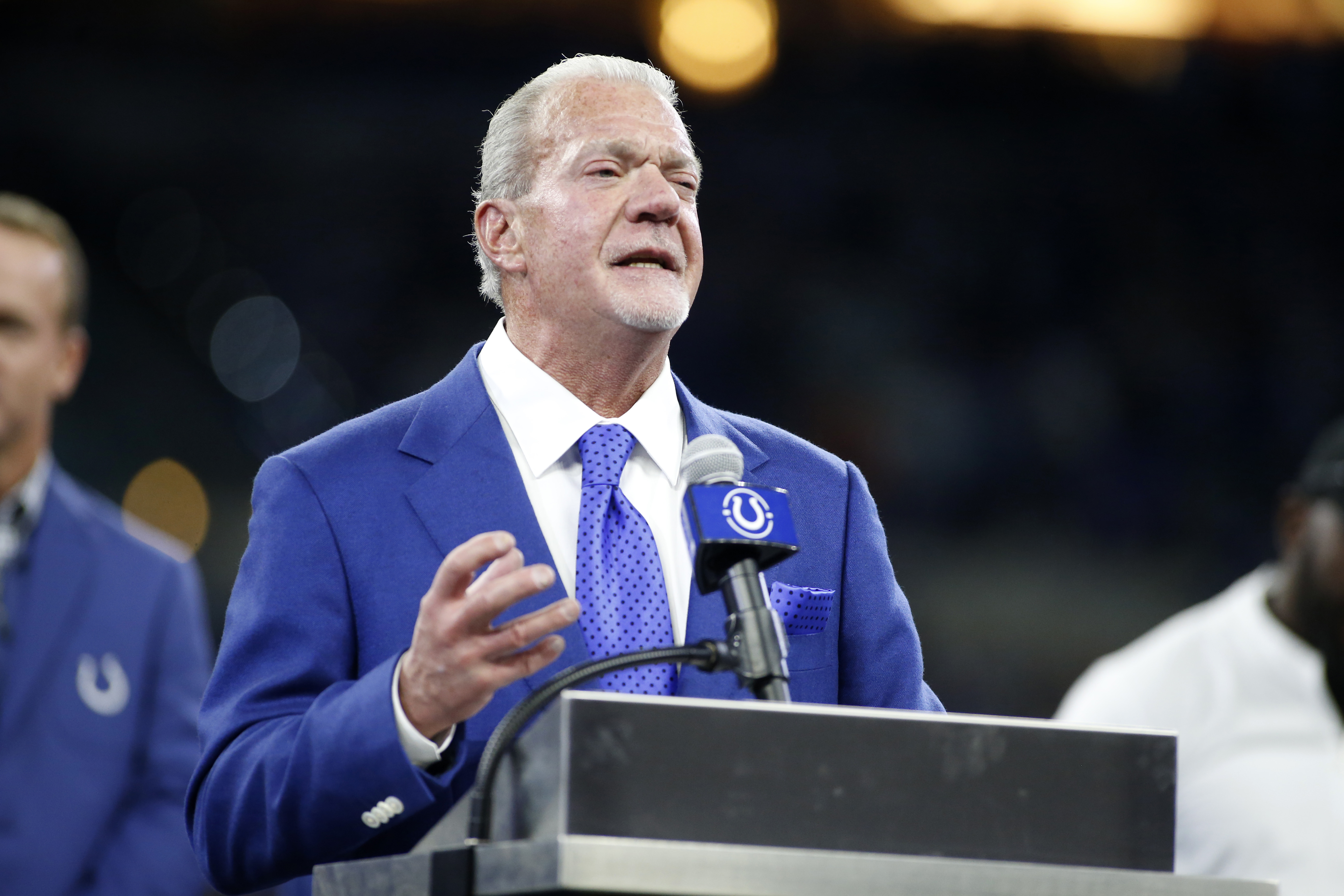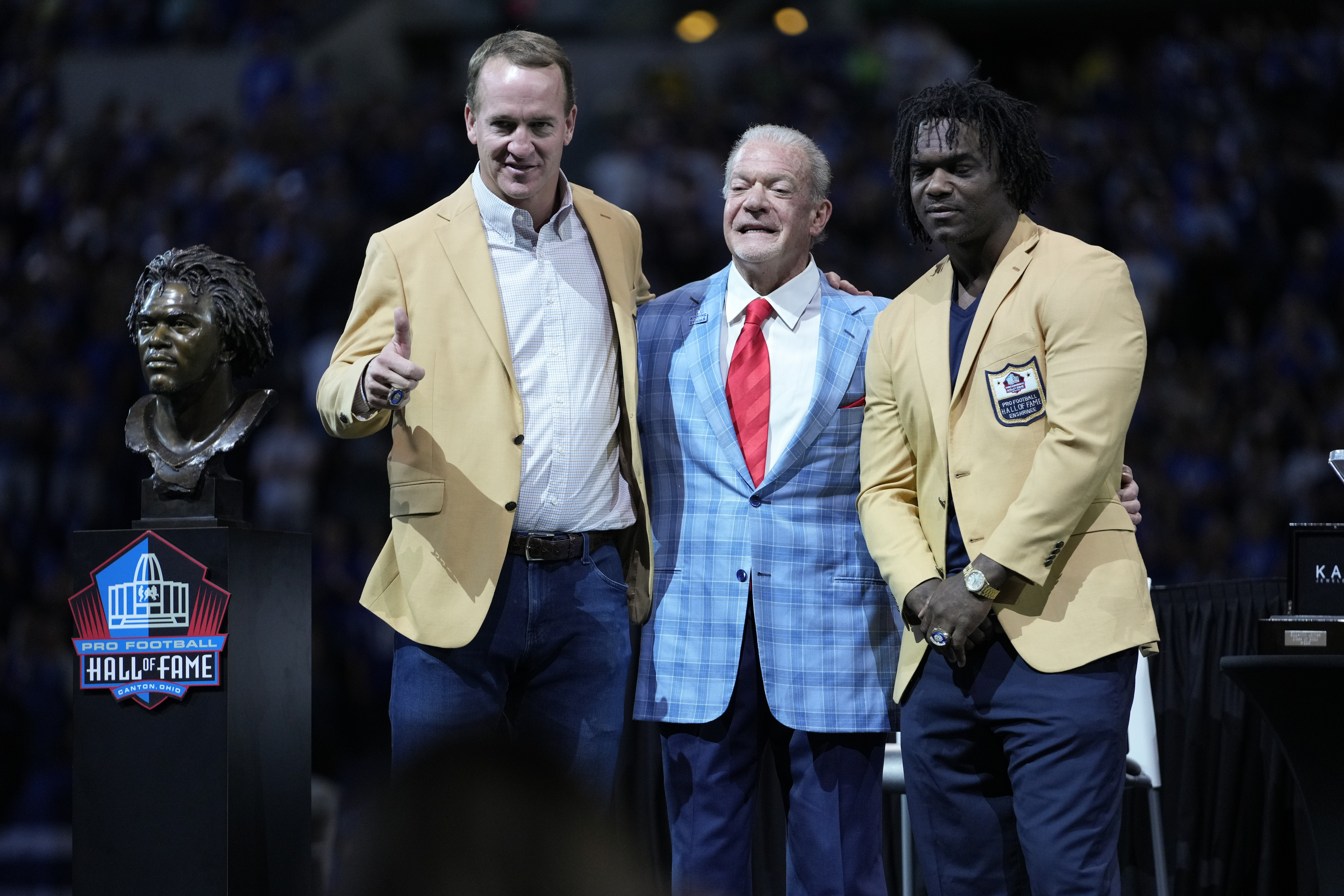A few weeks ago, when Indianapolis Colts owner Jim Irsay lost himself in Meek Mill’s “Dreams and Nightmares” after the team’s win over the Panthers, it reminded me of one of Chris Rock’s funnier movies – Down To Earth.
There’s a scene in the movie where Rock, who unironically plays a comedian, dies and comes back to Earth as a rich white man. He hears “Ruff Ryders Anthem” by DMX and starts singing along with the first verse, N-words and all.
The scene is meant to be unserious, which is exactly how I would take Irsay’s recent comments to HBO Sports, when he said his 2014 arrest for operating a vehicle while intoxicated was a result of police prejudice against him for being “a rich, white billionaire.” Surely someone who made these comments on the site formerly known as Twitter about Black Lives Matter in 2020 would understand his privilege:
Of COURSE all lives matter, but the phrase “BLACK LIVES MATTER” is about unequal treatment faced by BLACK Americans. It does not say or imply that ONLY black lives matter. E.g., when we say “BEAT BREAST CANCER” it doesn’t mean we don’t care about beating leukemia.
Irsay certainly has a right to his opinion, much like he has the right to pump his fists to the musings of Meek Mill. And even in that moment, there is privilege. Why do folks care when Irsay dances, or when Kirk Cousins throws on a few chains? The scene is meant to be unserious, but Black folks rarely enjoy this luxury in the realm of entertainment, if at all. As consumers and creators, we are scrutinized.
Privilege is a birthright, a benefit, an advantage. Dancing in that locker room makes him cool, makes him one of the guys – even though he is the furthest from them, financially and otherwise.
“If I die tonight and Jonathan Taylor is out of the league, no one’s gonna miss us,” Irsay told The Athletic in July. “The league goes on. We know that. The National Football (League) rolls on. It doesn’t matter who comes and who goes, and it’s a privilege to be a part of it.”
Irsay understands what it means to have an advantage. His morbid assessment of Taylor, the Colts’ star running back, and his trade request was intellectually dishonest. It is exceedingly difficult to separate an NFL owner – or any pro sports team governor for that matter – from his or her team. Taylor’s job security is far more perilous, as evidenced by Irsay’s subsequent power play – his running back would not be traded under any circumstances. That is privilege, power, control.
Where we exist in a system is important, which makes Irsay’s comments about police prejudice particularly disconcerting. At the time of his arrest, police discovered various prescription drugs in Irsay’s vehicle along with more than $29,000 in cash. A toxicology report showed Irsay had the painkillers oxycodone and hydrocodone as well as alprazolam, which is used to treat anxiety, in his system at the time of his arrest. During his interview with HBO Sports, Irsay said he failed the sobriety tests because he had recently undergone hip surgery.
“I had just had hip surgery, and had been in the car for 45 minutes,” Irsay said. “They asked me to walk the line? Are you kidding me? I can barely walk at all.”
Just Friday morning, I watched yet another tragic dash cam video, this time of Johnny Hollman, an Atlanta deacon who was tased to death by a police officer. I try to avoid police videos because, as a Black man, I am under enough stress, and only recently learned of a term called “allostatic load.” It is the cumulative effect of stress and trauma, and as is the case with most disparities, negatively affects Black people more so than whites, as a report from the National Library of Medicine states:
The concept of allostatic load, which refers to the accumulation of physiological perturbations as a result of repeated or chronic stressors in daily life, could partially explain the residual black-white disparity in mortality rates.
The Hollman tragedy unnerved me, the same way I was shaken when I read about the fate of Leonard Cure. He served 16 years in prison on a wrongful conviction, then was murdered by Georgia police in October only a few years after his exoneration in 2020.
Thanksgiving will never be the same for the family of Sean Bell, who was murdered in 2006 by police. Irsay’s commentary on police prejudice, which hit airwaves nearly 17 years to the date of the Bell shooting, falls flat in the face of profound brutality.

Justin Casterline/Getty Images
Certainly, there’s the temptation to ask what might have happened in 2014 if Irsay was Black with nearly $30,000 and a drug store’s worth of product in the car. But I also remember the NFL’s crackdown on “player conduct” in 2007 and how that standard was updated in 2014.
Had the NFL held its owners to the same standard that it held its players, would Irsay still have a team? In the same year Irsay was arrested, the NBA made the decision to ban former Los Angeles Clippers owner Donald Sterling for life after private recordings where he made racist statements became public.
After Irsay’s comments on HBO Sports became the subject of a First Take segment with journalists Stephen A. Smith and Kimberley A. Martin, the Colts owner railed against both of them on the site formerly known as Twitter. His comments against Martin were particularly disconcerting, saying that she was a “nothing burger” and that if his “Black mother” was still alive, Martin would be in “hot water.”
I can’t stop thinking of that image of Irsay pumping his fists to Meek Mill’s increasingly angry words. Irsay’s story isn’t a rags-to-riches tale. He’s always been rich, but his dream life becomes a nightmare for others when he fails to recognize his own privilege.
Irsay’s gesturing to rap lyrics? Harmless caricaturing. Rock’s movie, a remake of a sports dramedy from 1978, “Heaven Can Wait”? Harmless caricaturing.
A rich, white billionaire saying that his wealth and race make him a target for police prejudice? That is a dangerous exaggeration. It is reflective of the NFL’s simultaneous acknowledgement of racism through slogans, while allowing the type of practices that inspire lawsuits and allegations of racism from Black coaches.
When Irsay centers himself as a victim in the midst of visibly racist systems, he represents the worst of what manipulators do in race relations – gaslighting. And that’s no laughing matter.



